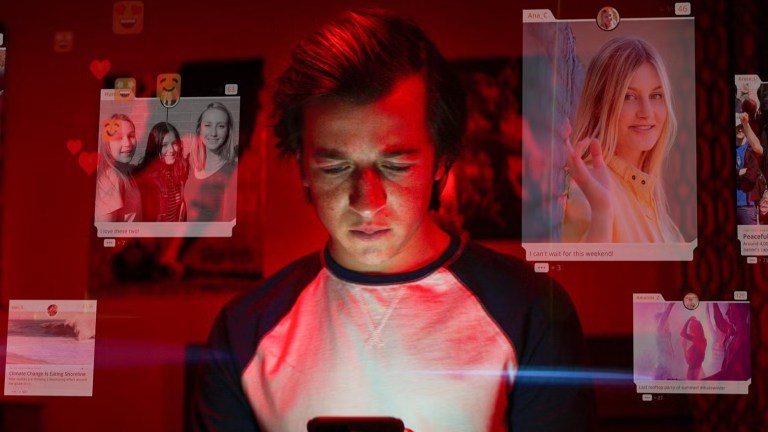
Stream This AI Thriller Where Technology Replaces Humanity
The topic of artificial intelligence ruffles feathers. Not because it’s useless technology – quite the contrary – but due to the unregulated and uncontrolled nature of it that’s running rampant at the moment.
The dystopia of Terminator doesn’t look like fiction anymore, because everyone knows these tech bro billionaires will sell out humanity for their own Napoleon fantasies and Judgment Day be damned.
We have seen AI take the place of simple tasks like replying to emails to more grand endeavors such as creative production. AI is infiltrating the areas that are expressions of humanity, so it’s only natural that the next place it takes over is the most intimate of them all: sex. AI sex chat bots already exist, but Companion showcases a frightening world where companion robots take the place of actual humans. Now, it would be all too easy to paint out the robots as the bad guys in this situation, but the Drew Hancock-directed film showcases the dangerous future that lies ahead if humanity continues to further disconnect from itself. One in which we are the villains of our own doomed reality.
Control vs. companionship

Companion introduces the concept where people are able to buy or rent companion robots. These robots can be configured via an app whereby the user can control their intelligence levels and other aspects of their personality. While they are meant to have safety protocols in place to avoid doing harm to humans, Jack Quaid’s Josh proves that the system can be jailbroken and manipulated.
Hold on. Rewind to the earlier part about customization, because how frightening and deranged is this? Of course, everyone looks for certain qualities in romantic partners, but you also have to accept people as they are – it’s what makes us human, ultimately. Companion removes this important quality from the equation. Someone like Josh, for example, presents himself as a nice guy to his robot, Iris (Sophie Thatcher), but he’s the furthest thing from what he believes himself to be. He configures Iris to have lower intelligence levels, because he’s threatened by the thought of a woman being smarter than him. He’s a chauvinist who wants to dominate in a relationship, so he seeks out a subservient companion robot, because no real-life woman would tolerate his behavior.
What’s worse is how this is normalized in Companion, because Iris is a robot. He’s sold the ability to be toxic without repercussion since Iris has no rights nor autonomy to say no. Essentially, she becomes his property, not just his partner. And oh boy, a psychologist would have a field day unpacking everything wrong with this situation.
‘Companion’ turns the humans into the robots
Companion is reminiscent of 2023’s The Creator for one reason: it doesn’t lay the blame for society’s collapse at the foot of technology; it demonstrates how humanity needs to take accountability for the disaster of its own doing. By replacing humans with robots, it turns the humans into soulless beings who lack basic compassion and empathy for each other. We become the robots. Look at the interactions between Josh and his friends as an example. All the cues of friendship are there from the outside looking in, but when you get to the meat of the matter, they don’t know how to relate to each other anymore. They have lost the essence of being human, which only emboldens them to see how much further they can take their own depravity.
The idea behind the companion robots may have started with the best of intentions – such as ensuring that nobody is lonely in life – but the byproduct is that it severed human connection. Instead of people learning about and understanding others, it’s given them an out. They can program a companion to be everything they want and nothing they dislike, which is not an accurate representation of the world. Now, imagine if every single person on the planet only listened to and followed their id, while the ego and superego became surplus to requirements here. Chaos. Total and utter chaos is what would occur in the long term.
That’s Companion‘s lesson, though, isn’t it? It’s not about running away from technology. It’s about understanding that technology should never replace humanity. It’s a tool – something to make our lives better – but it shouldn’t ever take the place of what it means to be human. If it does? Well, we only have ourselves to blame for what happens next.











